Imagine a pill that gives people control over their reproductive choices—yet stirs arguments at kitchen tables, on social media, and even in courtrooms. Levonorgestrel, famous as the main ingredient in Plan B and several birth control pills, is exactly this kind of lightning rod. Some see it as a lifeline; others worry about its impact or question its ethics. The non-stop discussion around levonorgestrel hasn’t quieted down since its introduction. People argue: Is it safe? Does it do what it claims? Should it be sold over the counter? The answers aren’t as simple as yes or no. If you’ve ever wondered what the real fuss is about—or if you want real facts, not scare stories—stick around. This is the unfiltered story of levonorgestrel, from the science to the societal uproar.
What is Levonorgestrel and Why the Fuss?
Levonorgestrel isn’t a new kid on the block—doctors introduced it decades ago for regular birth control. It’s a synthetic form of the hormone progesterone, and it pops up in a variety of forms: daily birth control pills, hormonal IUDs, implants, and, most famously, the ‘morning-after’ emergency contraception pill. The magic (or controversy, depending on who you ask) is its ability to scramble ovulation or prevent fertilization if taken soon enough after unprotected sex. This alone puts it at the center of passionate arguments, especially in countries where birth control remains a hot topic.
The debate over levonorgestrel isn’t only about reproductive rights. Its over-the-counter status—especially in emergency contraception—means teens, college students, and anyone with $40 or so can walk into a pharmacy and buy it, no awkward doctor’s visit required. Some praise this as progress, a chance for people to make fast decisions. Critics fear misuse, side effects, or that young users might skip real medical advice. In 2023, a survey across U.S. states found 74% support for OTC access among adults, but opponents still lobby for it to stay behind the counter, citing ethical and safety concerns. The battle lines are drawn, and they don’t seem to be moving anytime soon.
Levonorgestrel’s main claim to fame is Plan B, a pill most effective when taken within 72 hours of sex, but it can be useful up to five days after. The World Health Organization and the U.S. FDA both back up its effectiveness: as many as 89% of pregnancies can be prevented if taken in the first 24 hours. That’s not just a marketing claim; those numbers are tracked by clinical studies running over several decades. Despite its proven track record, myths keep swirling: "Does it cause abortion?" "Is it dangerous for teens or those with medical conditions?" "Can it affect future fertility?" These questions don’t usually come with simple answers—but they definitely feed the controversy.
It’s important to point out that levonorgestrel doesn’t terminate an existing pregnancy. It works before fertilization or implantation. Doctors, pharmacists, and health authorities make this distinction clear. Yet misinformation spreads faster than facts, especially online, making people anxious or even afraid to use it—even if it’s medically safe for them. The debate grabs headlines, influencing not just medicine cabinets but also laws and policies.
How Levonorgestrel Works—and Where the Science Gets Messy
Most people think of emergency contraception as a single pill, but levonorgestrel does a lot more. In hormonal IUDs like Mirena or in oral contraceptives, it’s released slowly to prevent ovulation month after month. At the heart of all these methods is one goal: stop the egg from meeting sperm. Levonorgestrel achieves this more by stopping ovulation before it even starts or by thickening cervical mucus so sperm can’t complete the journey.
Here’s where science and public debate start to clash. Some older research fueled concerns that levonorgestrel could interfere with the uterus, potentially preventing a fertilized egg from implanting. That set off alarms in communities that believe life begins at fertilization. More recent science, outlined by groups like the American College of Obstetricians and Gynecologists, leans heavily toward the idea that the drug’s main action is before fertilization. Still, these doubts keep circulating, shaping legislation in several U.S. states and sparking heated debate online.
Another piece often overlooked in debates: emergency contraception is not the same as abortion. Levonorgestrel can’t affect a pregnancy that has already started. In fact, its effectiveness drops the longer you wait after unprotected sex because ovulation may have already happened. If implantation occurs, the drug can’t stop or harm that process. This detail might sound small, but it makes a huge difference in how people, advocacy groups, and lawmakers view levonorgestrel’s place in society.
Real-world numbers add another twist to the discussion. According to a CDC report from 2022, one out of four U.S. women under 35 used emergency contraception at least once. Among them, usage spikes after failed birth control (condom broke) or in cases of sexual assault. Critics sometimes argue that easy access will promote risky sex, but studies in Europe and North America find otherwise; most people still use regular birth control and only turn to emergency contraception when the unexpected happens. The ‘Plan A’ is still usual contraception—Plan B really is just that: a backup for the backup plan.
Still, not everyone responds to levonorgestrel in the same way. Studies at University College London found that people with higher body weight have lower drug absorption, making the pill less effective. That’s not often discussed during pharmacy handovers. In 2024, some pharmaceutical companies started including this information directly on packaging. If you weigh over 175 pounds, ask your pharmacist about alternatives like the ulipristal acetate pill (Ella) or a copper IUD for emergency contraception. A quick chat can make a real difference in outcomes.
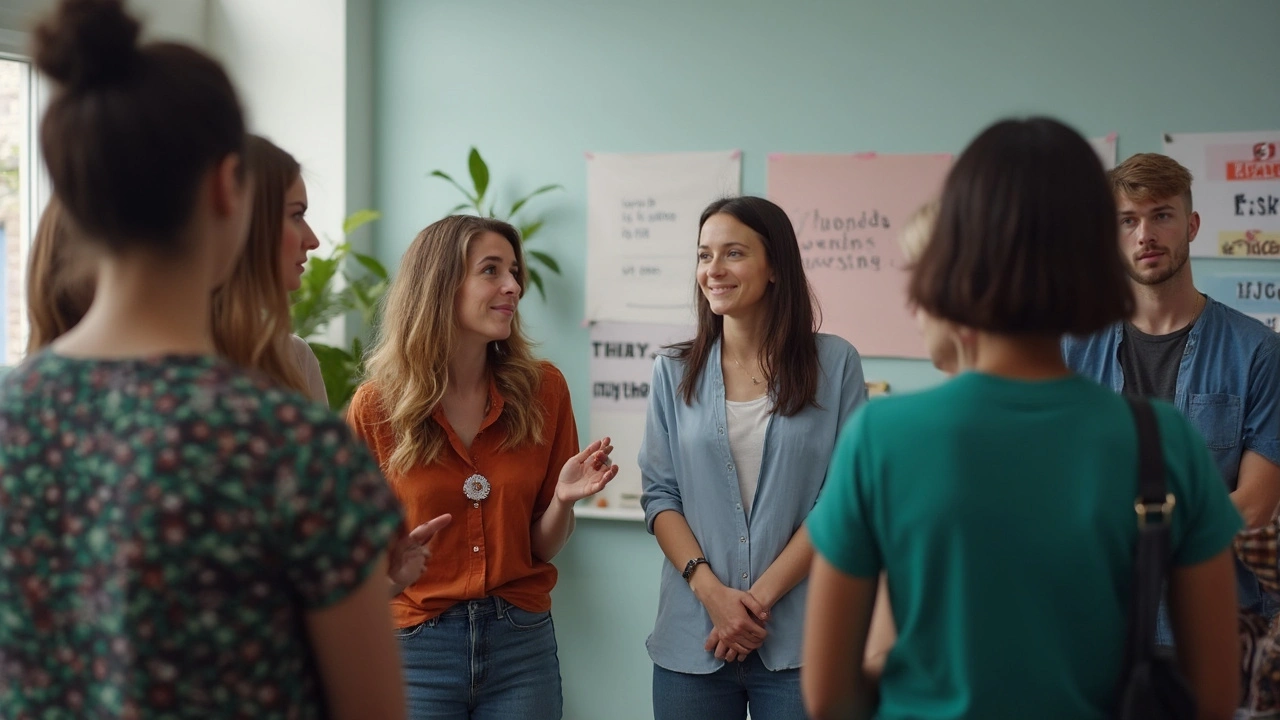
Side Effects, Myths, and Real Risks
One major reason people hesitate about using levonorgestrel is concern over side effects. The most common issues are short-lived: nausea, headache, a change in next period timing, tiredness, and breast tenderness. For most, symptoms vanish within a day or two. People worry about long-term damage, but there’s no evidence it harms fertility, causes birth defects, or leads to future health problems in healthy users.
But misinformation is a persistent problem. You’ve probably seen social media posts warning of permanent hormonal disruption, infertility, or serious illness after a single dose. These claims don’t match up with what peer-reviewed medical journals report. There’s no data supporting the idea that one or two uses—over months or years—affect health in any lasting way. The Centers for Disease Control and Prevention openly says using emergency contraception multiple times is safe, though they recommend switching to a regular method for better, stress-free protection.
Everyone’s body reacts slightly differently. Some users report irregular spotting, mood swings, or even heavier periods next time around. These effects are almost always temporary; doctors usually suggest taking the pill with food if nausea is a problem. Allergic reactions are rare, but anyone who experiences swelling, trouble breathing, or hives should seek emergency help. If periods don’t return after three weeks, a pregnancy test is wise, since EC can sometimes fail due to late dosing.
It’s also worth knowing what levonorgestrel does not do. It won’t protect against HIV or other sexually transmitted infections. It doesn’t work as a regular birth control. It doesn’t cause abortion, and it doesn’t stop a pregnancy from developing if you’re already pregnant at the time you take it. This fact might surprise people who confuse emergency contraception with abortion pills; those are entirely different medications with very different functions and risks.
The *real* risk with levonorgestrel is usually human error: taking it too late, using it as a primary birth control instead of a backup, or misunderstanding instructions. Some drug interactions can also reduce effectiveness. For example, if you’re on anti-seizure meds, some antibiotics, or even herbal supplements like St. John’s Wort, the EC pill may not work as expected. Doctors and pharmacists are best placed to walk you through individual risks. A quick consultation—by phone or in person—can prevent regret and wasted money.
Public Debate, Ethics, and Tips for Safe Use
Why is levonorgestrel such a political and cultural lightning rod, when medical experts say it’s safe and effective? The answer comes down to beliefs about when life begins and who gets to make decisions about contraception. Organizations like the American Medical Association and World Health Organization firmly support its availability, but local laws differ wildly, especially since the U.S. Supreme Court’s 2022 Dobbs decision returned reproductive law-making to individual states. In places with strict abortion bans, people sometimes mistake levonorgestrel for abortion-inducing drugs, leading to protests and even attempts to block access in pharmacies.
Some school boards and universities have debated whether to make the morning-after pill available on campus or in student health clinics. Meanwhile, pharmacists in some regions can legally refuse to dispense it, citing personal beliefs. These roadblocks create real stress and confusion for people who need fast action—remember, the clock is ticking with emergency contraception.
So what should you do if you’re considering levonorgestrel? Here’s a practical rundown:
- Read the entire label—even the small print. Follow timing instructions closely; the sooner you take it, the better.
- If you vomit within two hours, you’ll need another dose.
- Tell your pharmacist about all other medications or supplements, especially if you use anti-epileptics, antibiotics, or herbal remedies.
- If your BMI is above 25-30, talk with a healthcare professional about more reliable options (like a non-hormonal copper IUD).
- Don’t hesitate to call a helpline or clinic for nonjudgmental advice. Many offer after-hours services for urgent questions.
- Use regular contraception whenever possible—emergency pills are a backup, not a substitute.
- If your period is more than a week late after taking EC, use a pregnancy test to be sure.
Another tip: keep a spare EC pill at home if you’re sexually active and don’t want kids right now. Accidents can happen even with the best-planned protection, and having immediate access can save time and stress.
Levonorgestrel’s story isn’t just about medicine; it’s about trust, personal freedom, and the clash of old beliefs with new science. Levonorgestrel won’t become less controversial anytime soon—the debates over reproductive rights, healthcare, and youth education are only getting louder. The smart move is to stay informed, trust reputable sources, and talk openly with experts who can cut through the static. Whether or not you think this tiny pill deserves its big reputation, knowing the facts is the only way to make confident, clear-headed decisions.



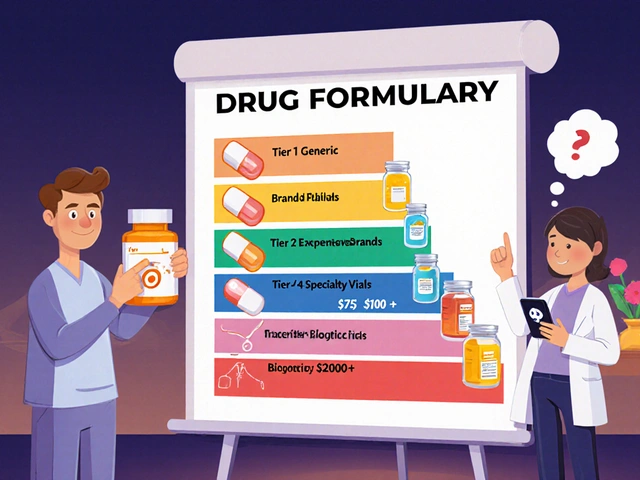

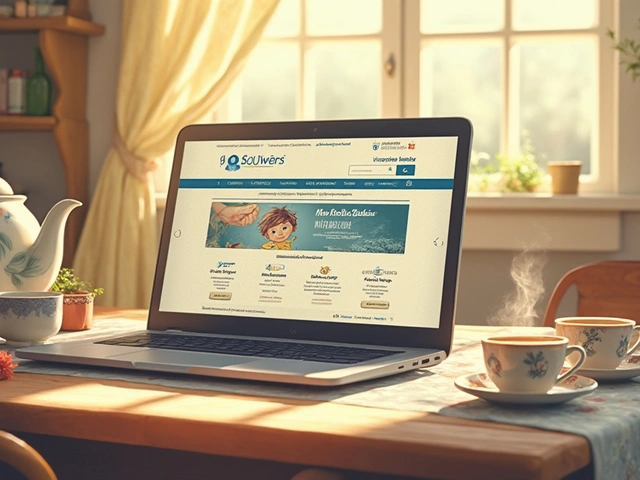
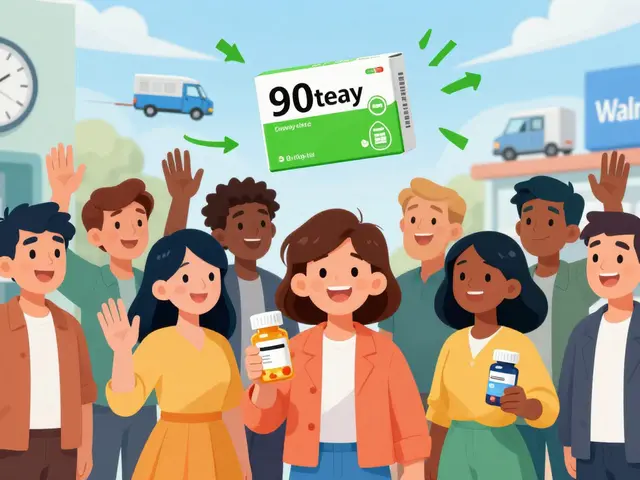
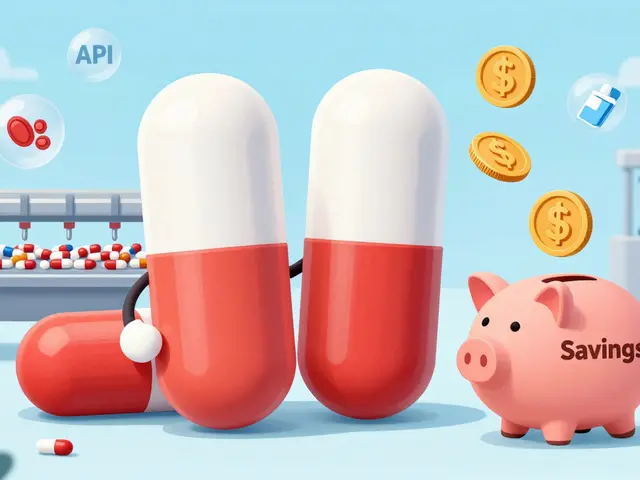
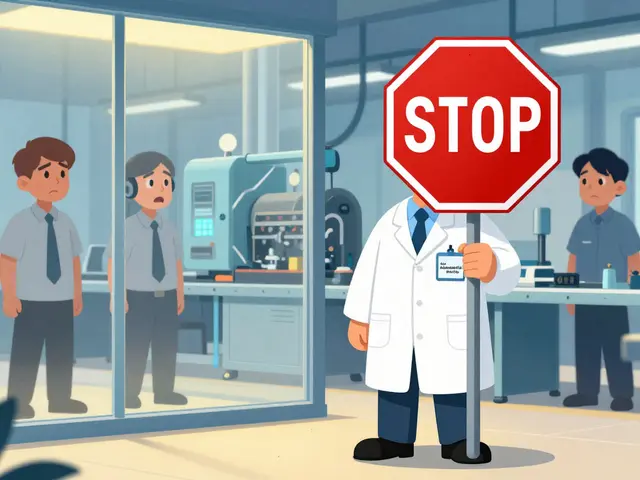
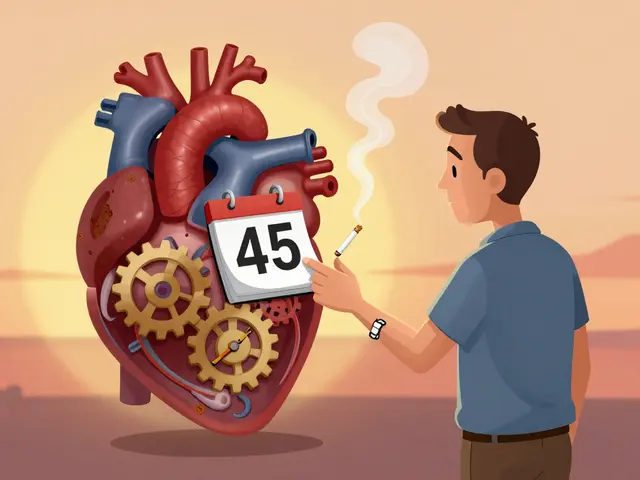
Debra Callaghan
This pill is being pushed on teens like it's candy, and no one's talking about the real consequences. I've seen girls get addicted to it after one bad night, then wonder why their cycles are messed up for years. It's not a 'backup plan'-it's a crutch for lazy sex ed.
And don't even get me started on the pharmacies handing it out like free gum. No ID? No questions? That's not progress, that's negligence.
Mitch Baumann
Ah, yes-the ever-so-sophisticated discourse surrounding levonorgestrel… truly, a marvel of modern pharmacological ethics. One cannot help but marvel at the ontological dissonance between its mechanistic action (i.e., suppression of ovulation) and the moral panic surrounding its ‘abortifacient’ mischaracterization. The WHO’s 2023 position statement, coupled with the ACOG’s 2024 meta-analysis, renders most populist objections… well, scientifically untenable. 🤷♂️💊
Still, I do wonder: is the OTC model truly equitable, or merely convenient for the middle class? The pharmacokinetic disparities in higher-BMI populations remain conspicuously under-discussed… and frankly, scandalous.
Gina Damiano
I just took this pill last month after my condom broke… and I’m still scared to tell my mom. She thinks it’s the same as abortion. I didn’t know until I read this article that it doesn’t work after implantation. I feel like I’ve been lied to my whole life. I just wanted to be safe. Why is this so hard to explain?
Also, I’m 22, 180 lbs, and my pharmacist didn’t say anything about it being less effective. I’m so mad right now.
Emily Duke
OMG. I can’t believe people still think this is safe?? I know a girl who took it 3x in one year and now she can’t get pregnant. Like… how? It’s not just ‘side effects’-it’s RUINING lives. And the fact that Big Pharma is pushing this like it’s a vitamin?? 🤢
And don’t even get me started on the teens. My cousin’s 15-year-old got it from the gas station. No one even asked her if she was okay. This is a disaster. Wake up people. This isn’t empowerment-it’s exploitation.
Also, I read on Reddit that it causes cancer. I don’t know if it’s true but… I’m scared now. 😭
Stacey Whitaker
Been in Australia for 10 years. We’ve had this over the counter since 2015. No chaos. No teen apocalypse. Just… people using it when they need to. The drama here is wild. Real talk: if you’re scared of a pill that stops ovulation, maybe you should talk to someone who understands biology. Not TikTok.
Also, my sister used it after assault. She didn’t have time to wait for a doctor. That’s not a ‘lifestyle choice.’ That’s survival.
Stop turning medicine into a moral test.
Kayleigh Walton
If you're reading this and you're unsure about levonorgestrel, I want you to know you're not alone. Many people feel confused, scared, or even guilty after using it-and that’s okay.
But please, don’t let misinformation silence your voice. Talk to a trusted nurse, a Planned Parenthood hotline, or even your pharmacist-they’re trained to help, not judge.
And if you're worried about effectiveness because of your weight? Ask for Ella or a copper IUD. No shame in that. Your body deserves better options.
You’re not careless for needing this. You’re human. And you deserve accurate information, not fear-mongering.
Keep asking questions. Keep seeking help. You’ve got this.
Stephen Tolero
What is the current efficacy rate of levonorgestrel in BMI >30 populations? Please cite primary source data from peer-reviewed trials.
Brooklyn Andrews
Ugh. I’m so tired of Americans treating birth control like a crime. We’ve had this pill in Australia for 10 years and no one’s turned into a hormonal monster. The real problem? Lack of sex ed. Not the pill.
Also, I’m 185 lbs and took it last year. Didn’t work. Got a copper IUD instead. Best decision ever. If you’re over 175, don’t waste your money on Plan B. Go straight to the clinic.
And stop blaming the pill. Blame the system that makes you wait 3 days to see a doctor.
Joanne Haselden
It’s imperative to underscore the clinical distinction between emergency contraception and abortifacients-a semantic and pharmacological divergence that remains persistently conflated within sociopolitical discourse. The pharmacokinetic variability associated with elevated BMI necessitates a paradigm shift in public health messaging, particularly in resource-constrained settings where access to alternative modalities is limited. Moreover, the ethical imperative of pharmacist non-refusal must be codified into regulatory frameworks to ensure equitable access. The current landscape, replete with moral exemptions, constitutes a structural violation of reproductive autonomy. We must advocate for policy reform grounded in evidence, not ideology.
Vatsal Nathwani
Why even talk about this? Everyone knows it's just a way for girls to have sex without consequences. No one cares about the science. Just give them a pill and they'll be happy. But then they wonder why they're depressed or fat or have no future.
My cousin did it 5 times. Now she's single and sad. Coincidence? I think not.
Also, why do Americans make everything so complicated? Just say no to sex. Problem solved.
Saloni Khobragade
Levonorgestrel is evil. I read on a blog that it makes you sterile. My friend’s sister took it and now she can’t have kids. I’m not even sexually active but I’m scared to even go near a pharmacy now. 😭
Also, why is it even legal? It’s like giving kids a gun and saying ‘be responsible.’
Sean Nhung
So if I’m over 175 lbs and I take Plan B… it might not work? And no one tells me that? 😳
That’s wild. I just bought one last week. I’m gonna call my pharmacist tomorrow. Thanks for the heads-up, article.
Also… can I keep one in my purse? Like, for emergencies? 🤔